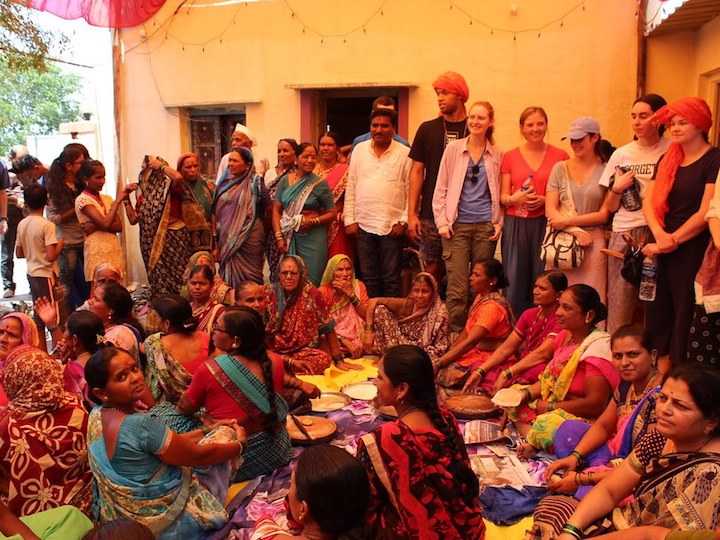More than 60 undergraduate students and recent graduates from the Indian School of Management and Entrepreneurship and the Indian School of Design and Innovation attended the workshop. The session was modeled off of the India Innovation Studio (INAF 311/INAF 312), a class in Georgetown’s Walsh School of Foreign Service which uses design thinking to prototype and implement solutions to some of India’s most pressing development challenges.
The Designing for Social Innovation workshop aimed to familiarize students in India with Georgetown’s innovative work in the fields of design, social innovation, and entrepreneurship. The event exposed participants to new methods of problem-solving, helped them understand basic entrepreneurship and business skills, and equipped them with the tools to develop their own ventures.
Participants in the event developed potential solutions to complex problems, including the prolonged drought in Maharashtra and the lack of sufficient public health education in Uttar Pradesh and Bihar. The India Initiative student fellows, as well as the staff at ISME, worked to cultivate a mindset of innovation, ownership, and action. Consequently, the proposed solutions from the participants were diverse and creative. The groups addressing public health education and accessibility proposed solutions such as a medical pill dispenser for villages and a rural health education theater troupe.
The winning team tackling drought in Maharashtra planned to repurpose abandoned greenhouses and poly houses and outfit them with smart sensors. The management of these greenhouses could then be undertaken by farmers in drought-stricken areas, helping to combat both poverty and famine. Students in the Georgetown India Innovation Studio plan to work with this winning team to help them develop their idea and hope to showcase it with them at a summer policy conference in Mumbai.
The Designing for Social Innovation workshop was the first in a series of workshops between the India Initiative student fellows and partner organizations in India. The fellows hope that these events will help build an ecosystem of students and entrepreneurs in India who are committed to engaging some of the most pressing development issues across the subcontinent.


